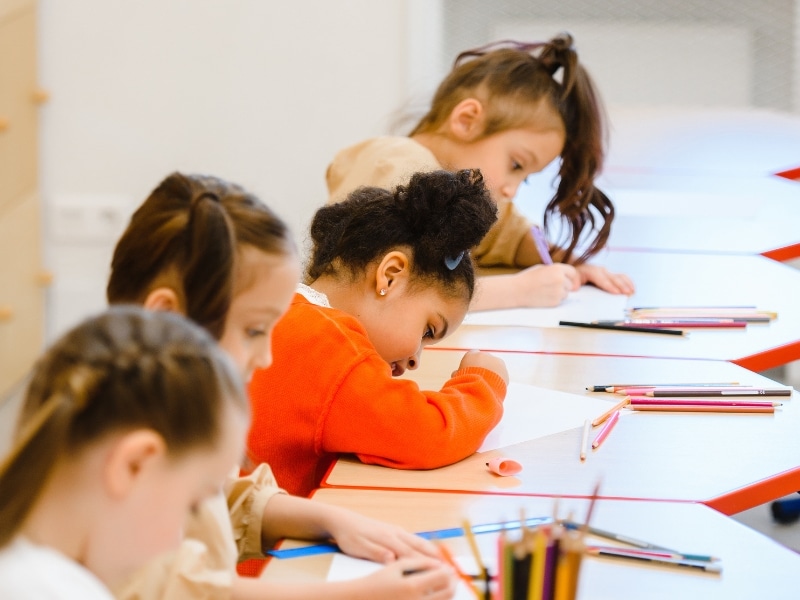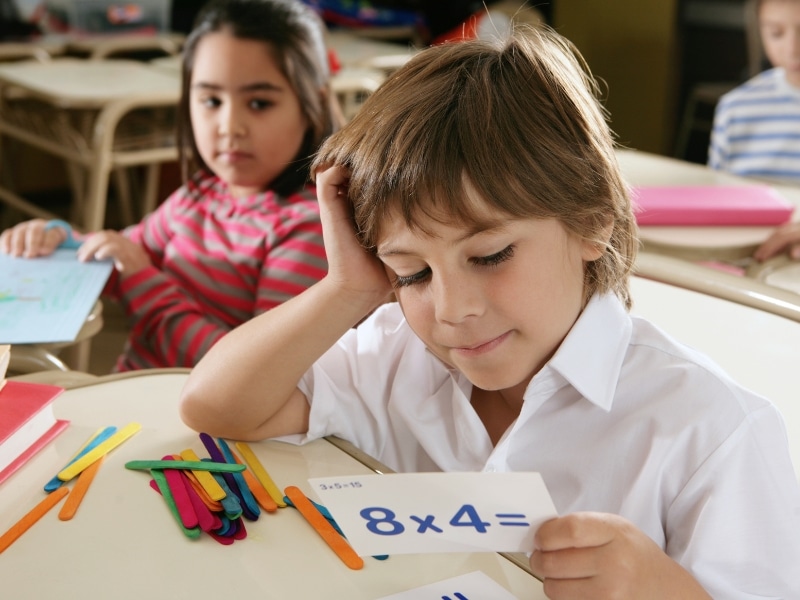What Are the Most Important Academic Skills for School Readiness?

School readiness is a crucial concept in early childhood education. It encompasses the important academic skills and emotional and social abilities that a child needs to thrive in school. School readiness doesn’t just mean knowing your ABCs. Still, it’s about interacting with peers, following instructions, and taking on learning challenges. This article will explore the important academic skills vital for school readiness, how they affect a child’s future success, and how parents can foster them at home.
Why is school readiness important for a child’s success?
School readiness is a foundation for long-term academic and personal success. Children who start school with strong skills are more likely to have positive educational outcomes. Below are some key reasons why school readiness matters:
- Emotional development: Children who are emotionally prepared for school can handle the pressures of a structured environment, enhancing their learning ability.
- Academic success: Early academic skills like reading, writing, and numeracy set the tone for future learning.
- Social skills: School readiness involves developing the social skills necessary to interact with peers and teachers.
- Adaptability: Children ready for school can adapt to various classroom environments and routines more quickly.
School readiness is an important milestone in early childhood development because it lays the groundwork for a child’s ability to manage academic and social challenges.
What are the important academic skills for school readiness?
Regarding school readiness, several academic skills are essential for a child to succeed in their early years of schooling. These skills contribute to their educational growth and enhance their ability to engage with teachers and classmates. Below are some of the most essential academic skills for school readiness:
| Skill | Description |
| Early literacy | Recognising letters, sounds, and vocabulary for reading and writing. |
| Numeracy | Understanding numbers, counting, and basic math concepts. |
| Attention & Focus | Following instructions and concentrating on tasks. |
| Problem-solving | Thinking critically and solving simple problems. |
| Self-regulation | Managing emotions and impulses for better learning. |
These academic skills play a significant role in helping children adapt to the demands of school, transition smoothly to school life, and set them up for success in their educational journey.
When should children start developing these academic skills?
It’s never too early to start nurturing academic skills. While formal schooling begins around age five or six, academic skills develop much earlier. Research shows that the first five years of life are critical for cognitive and academic development. Here’s a rough timeline for when children typically start developing key academic skills:
- Infants (0-1 year): Early sensory development and social interactions play a key role in cognitive growth.
- Toddlers (1-3 years): This stage is when children begin learning language, social skills, and basic concepts like shapes and colours.
- Preschoolers (3-5 years): These years are crucial for developing early literacy and numeracy skills, following instructions, and managing emotions.

- Kindergarten (5-6 years): The focus here should be reinforcing literacy and numeracy skills, developing attention span, and working on social skills.
During these formative years, children need to engage in age-appropriate learning experiences through a tailored school readiness program to build a strong foundation for future academic success.
Is school readiness the same for every child?
Every child is unique, and school readiness can look different depending on a child’s individual development. While there are standard milestones that most children reach by certain ages, there’s no one-size-fits-all approach. Factors that can influence a child’s readiness include:
| Factor | Description |
| Developmental pace | Some children naturally excel in certain areas, like language, while others develop slower. |
| Learning style | Every child learns differently—some are visual learners, while others prefer hands-on activities. |
| Cultural differences | Children from diverse backgrounds have unique experiences that shape their school readiness. |
| Health and well-being | Physical and emotional health impact development; illness or stress may delay milestones. |
School readiness should be personalised based on a child’s needs, making it essential to assess each child individually.
Can parents help foster important academic skills at home?
Parents play a pivotal role in fostering academic skills for school readiness. Simple daily activities can help develop these skills long before a child enters a classroom. Here are some ways parents can encourage early academic skills at home:
- Read together: Reading aloud helps build language skills, instils a love for books, and can help your child overcome reading struggles. It also strengthens vocabulary and comprehension.
- Play with letters and numbers: Simple games like matching letters and numbers help children become familiar with foundational concepts.
- Practice writing: Encourage your child to draw and write, whether scribbling or forming simple letters.
- Use everyday opportunities for learning: From counting items at the grocery store to identifying shapes and colours around the house, daily life is full of learning opportunities.
Parents can create a learning-rich environment that fosters school readiness by engaging in these activities.
Which academic skills should be prioritised for school readiness?
When thinking about school readiness, it’s essential to prioritise the academic skills that will benefit children most in the early years of schooling. While all academic skills are crucial, here are some that should be focused on:
- Early literacy skills: Focus on recognising letters, understanding phonics, and developing vocabulary.
- Mathematical concepts: Start with counting, recognising shapes, and basic number concepts.

- Fine motor skills: Skills like holding a pencil, cutting with scissors, or drawing support writing readiness.
- Listening and following directions: Listening attentively and following simple instructions is vital for school success.
- Social-emotional development: Encouraging self-regulation, empathy, and cooperation helps children thrive in a classroom setting.
Focusing on these core skills early on will ensure children are well-equipped to start school confidently.
How do communication skills influence early learning?
Communication skills are a key component of school readiness. Expressing oneself clearly and understanding others is crucial in early learning. Here’s why communication skills are vital:
- Social interaction: Good communication skills allow children to interact with peers and adults, fostering social and emotional development.
- Language development: A child’s ability to speak and understand language predicts their academic success. It helps them follow instructions and engage in classroom activities.
- Conversational skills: Teaching children to ask questions and hold conversations fosters social skills and builds confidence.
- Problem-solving: Strong communication abilities enable children to ask questions and express needs, which is critical for problem-solving in school.
Fostering communication skills early creates a solid foundation for learning and social success.
Setting the stage for future learning
School readiness involves more than just academic skills. It includes a child’s ability to manage emotions, interact with others, and engage in learning. By focusing on developing key academic skills, such as literacy, numeracy, and cognitive abilities, parents can help their children enter school with confidence. Moreover, early intervention at home can significantly enhance these skills and set children up for future academic success.
Wondering how you can help your child feel confident and ready for school? Innocent Minds can help you.
